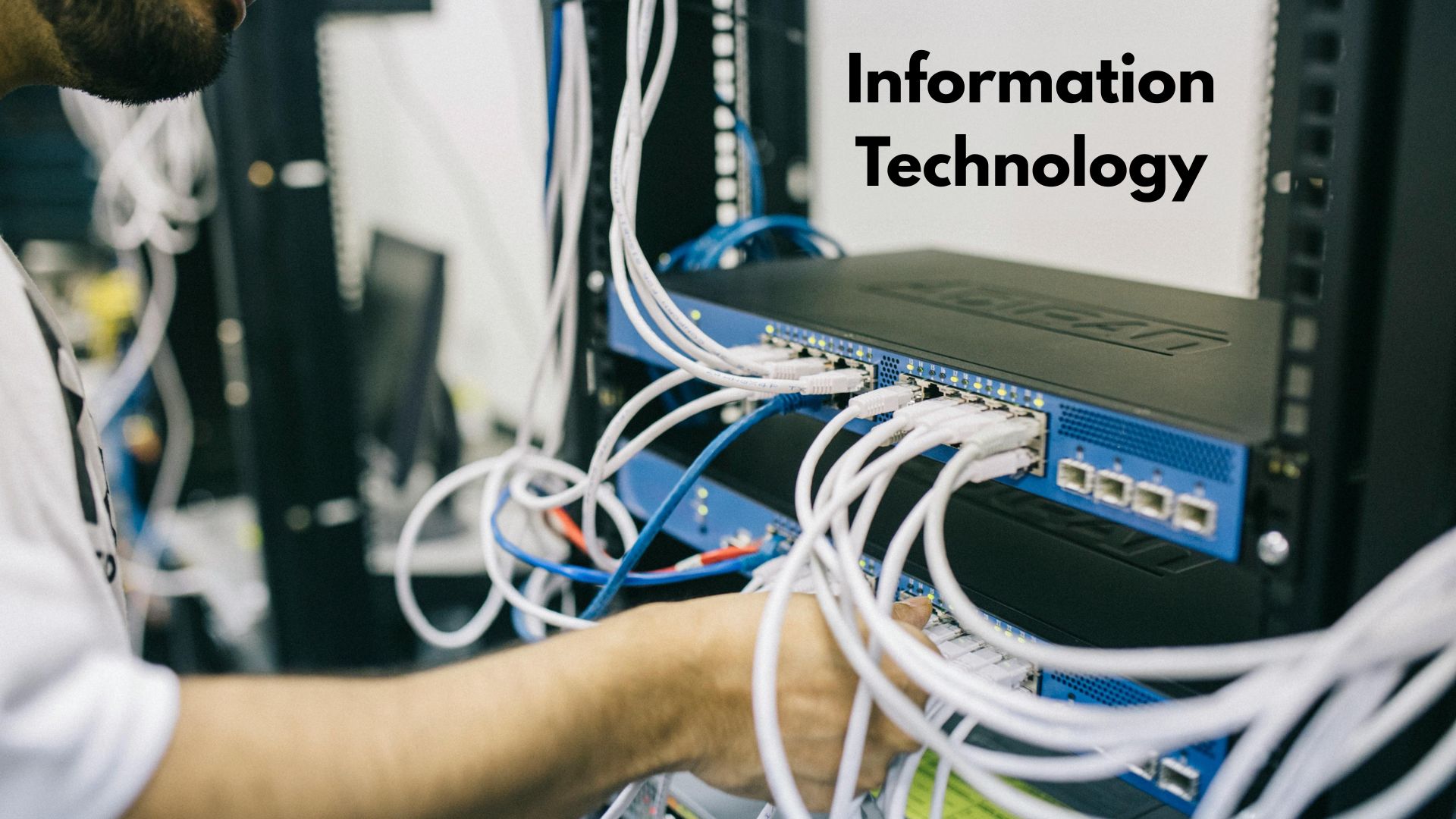An Overview of Information Technology
Introduction
Information Technology (IT) has become the backbone of modern society, influencing how businesses operate, how individuals communicate, and how data is processed and managed globally. From simple computer systems to complex cloud infrastructures and cybersecurity frameworks, IT encompasses a vast range of technologies and applications. This article provides a beginner-friendly yet thorough overview of Information Technology, exploring its key components, applications, benefits, challenges, and future trends.
What is Information Technology?
Information Technology refers to the use of computers, software, networks, and other digital systems to store, retrieve, transmit, and manipulate data. IT enables organizations and individuals to process vast amounts of information efficiently and securely.
IT is not limited to hardware and software but also involves managing databases, designing networks, ensuring cybersecurity, and providing IT support and services.
Core Components of Information Technology
Hardware
Hardware refers to the physical components of IT systems. This includes:
-
Computers and Servers: Devices that process and store data.
-
Networking Equipment: Routers, switches, and modems that connect systems.
-
Storage Devices: Hard drives, solid-state drives, and cloud storage solutions.
-
Peripherals: Keyboards, monitors, printers, and scanners.
Software
Software includes the programs and operating systems that run on hardware. It can be categorized into:
-
System Software: Operating systems like Windows, macOS, and Linux.
-
Application Software: Programs for specific tasks such as Microsoft Office, Adobe Photoshop, or enterprise resource planning (ERP) tools.
-
Middleware: Software that connects different applications or systems.
Networking
Networking is the interconnection of computers and devices to share resources and information. It involves:
-
Local Area Networks (LANs) and Wide Area Networks (WANs).
-
Internet Protocols such as TCP/IP.
-
Wireless technologies like Wi-Fi and 5G.
Data Management
Data management focuses on organizing and maintaining data effectively:
-
Databases: Systems like SQL Server, Oracle, and MongoDB store structured data.
-
Data Warehousing: Aggregating large volumes of data for analysis.
-
Data Analytics: Using tools and techniques to extract insights.
Cybersecurity
With the rise of digital operations, cybersecurity safeguards systems against threats:
-
Firewalls, antivirus software, and encryption protect data and networks.
-
Identity and Access Management (IAM) controls who can access resources.
-
Incident response and monitoring ensure timely threat mitigation.
Applications of Information Technology
Business and Enterprise
IT is critical for business operations, from managing customer relations to supply chain logistics:
-
Enterprise Resource Planning (ERP) systems integrate core processes.
-
Customer Relationship Management (CRM) tools help manage customer interactions.
-
Cloud computing enables scalable infrastructure and software as a service (SaaS).
Learn more about cloud computing benefits in Cloud Computing: Benefits and Drawbacks.
Education
IT supports e-learning platforms, digital classrooms, and student information systems, making education accessible and interactive.
Healthcare
Electronic Health Records (EHR), telemedicine, and AI diagnostics improve patient care and streamline healthcare delivery.
Government and Public Services
Digital governance initiatives enhance transparency, citizen engagement, and service delivery efficiency.
Benefits of Information Technology
-
Efficiency and Productivity: Automates repetitive tasks, speeding up workflows.
-
Data Accessibility: Enables real-time access to information anytime, anywhere.
-
Improved Communication: Facilitates instant communication through email, video conferencing, and messaging apps.
-
Cost Savings: Reduces operational costs by streamlining processes and enabling remote work.
-
Innovation: Supports the development of new products and services.
Challenges in Information Technology
Security Risks
Cyberattacks such as ransomware, phishing, and data breaches pose significant threats to organizations worldwide. Constant vigilance and investment in cybersecurity are necessary.
Rapid Technological Change
The fast pace of change requires continuous learning and adaptation, which can be challenging for businesses and IT professionals.
Data Privacy Concerns
Handling sensitive data requires compliance with regulations like GDPR and CCPA, making privacy management a priority.
Infrastructure Costs
Implementing and maintaining IT infrastructure can be expensive, especially for small and medium enterprises (SMEs).
Future Trends in Information Technology
Artificial Intelligence and Automation
AI is increasingly integrated into IT systems for automating tasks, predictive analytics, and enhancing user experiences.
Cloud and Edge Computing
Cloud adoption continues to grow, while edge computing brings data processing closer to the source for faster response times.
Internet of Things (IoT)
IoT connects everyday devices to the internet, enabling smart homes, cities, and industrial automation.
Blockchain Technology
Blockchain offers secure and transparent data management, especially in finance, supply chains, and identity verification.
Explore the potential of blockchain in Blockchain Technology.
Getting Started with Information Technology
For beginners interested in IT, the field offers numerous learning paths:
-
Certifications: CompTIA A+, Network+, Security+ for foundational skills.
-
Programming: Learning languages like Python, Java, or SQL.
-
Networking Basics: Understanding how networks function and are secured.
-
Cloud Platforms: Exploring AWS, Microsoft Azure, or Google Cloud services.
Many free and paid online courses are available to build your IT knowledge and skills.
Conclusion
Information Technology remains a dynamic and essential field that shapes how we live and work. Its vast scope encompasses everything from the devices we use daily to the complex systems that power global enterprises. By understanding the fundamentals of IT, beginners can better appreciate its impact and opportunities in today’s digital world.
For more on related topics, visit these insightful articles on Vounesy.com:
